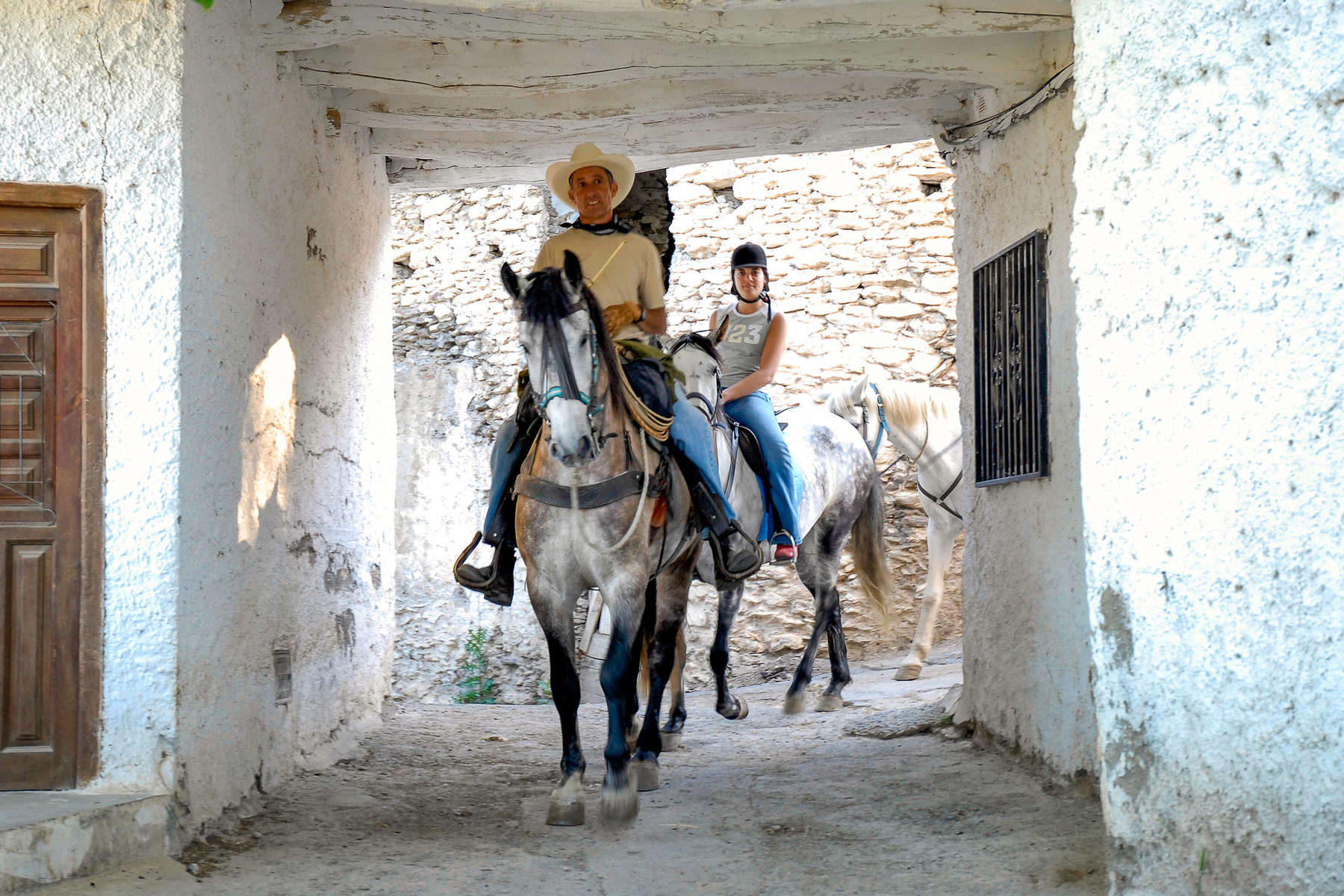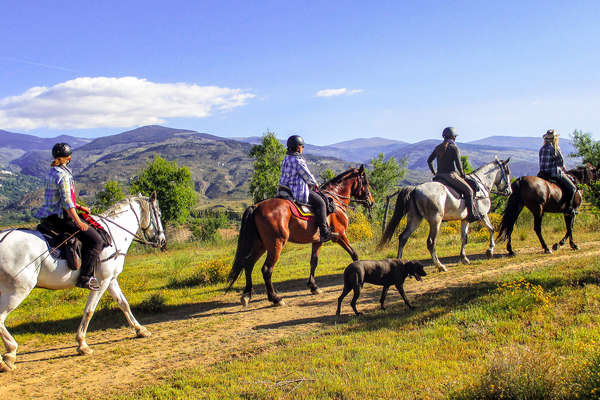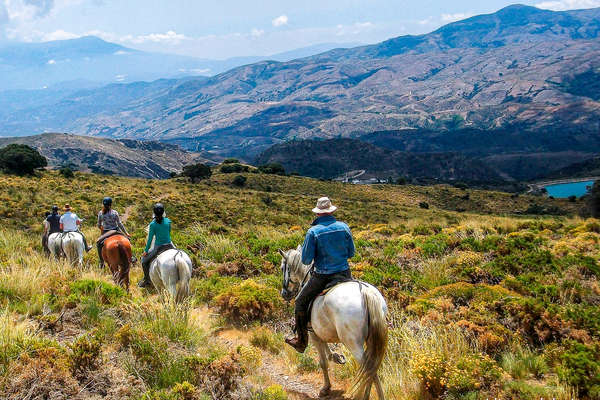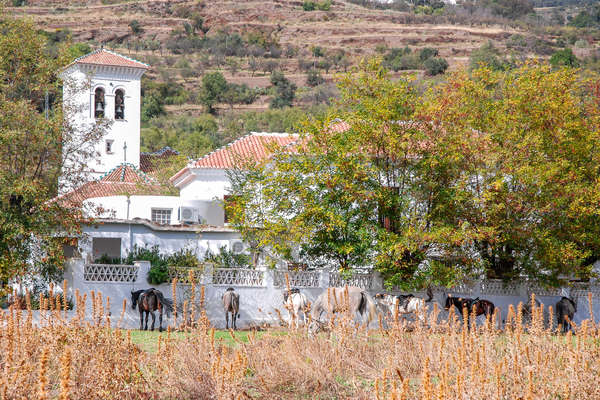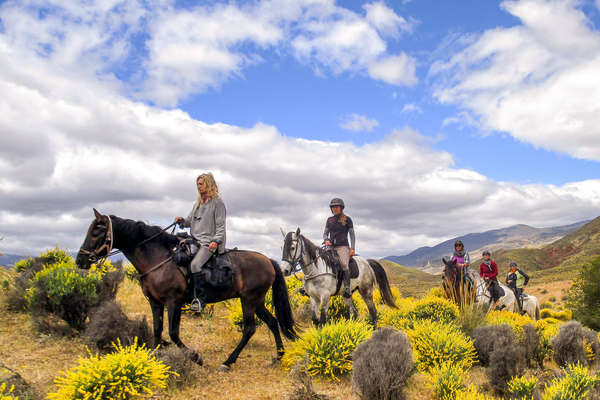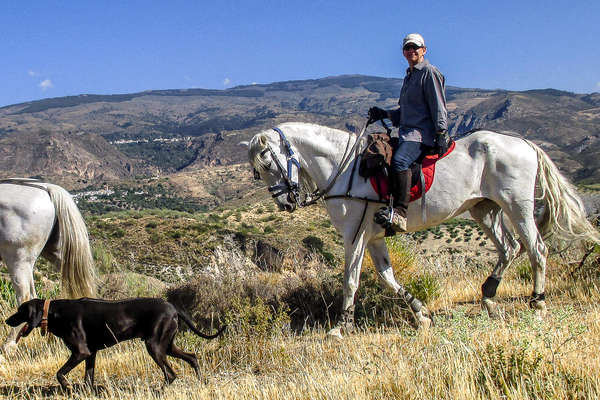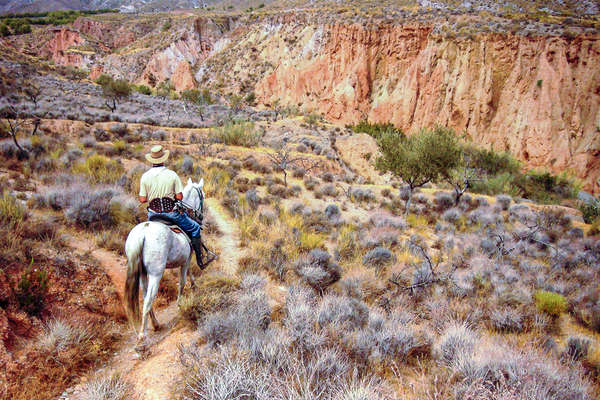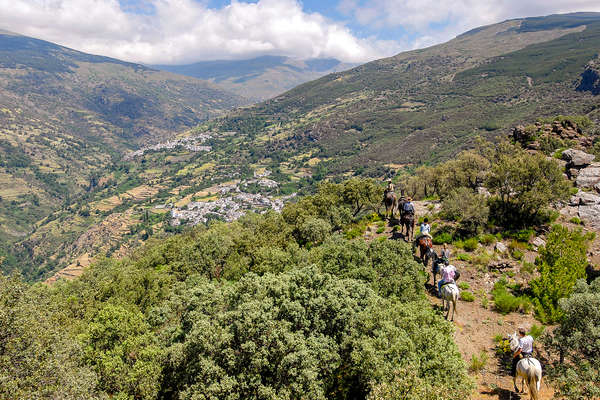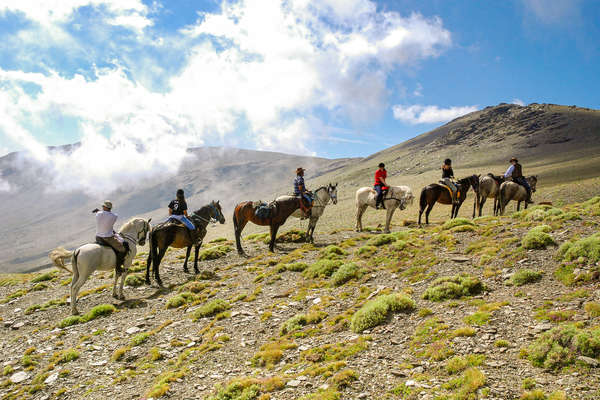Comfort
Stay in small, family-run hotels, in twin-bedded rooms with en-suite bathrooms. They are comfortable, clean, pleasant and friendly. Some hotels have a swimming pool.
Meals
Local meals and beverages.
Climate
Summers are dry and hot - around 30-35°C
Due to the altitude, winters can be cold (down to -4°C). Snow is not uncommon in this part of the country.
Tips
It is customary to leave a tip, usually around 10% of the bill - although this is often already. You may wish to leave a tip with the guide who can split it amongst all members of the team - this is not obligatory and is entirely at your discretion.
Packing list
Head
- A riding helmet is compulsory and we recommend that you take your own to ensure a correct fit. Helmet makers (GPA, HKM, LAS Helmets, Lamicell, Troxel, Equithème) now offer horse-riding helmets that are ventilated, strong, light and comfortable.
- Sunhat for when not riding
- Sunglasses - with a cord attached so they don't fly off when riding
- Buff or bandana for protecting your neck and face from the sun, wind or rain
- Warm hat for cold evenings/days
Upper body
- Thermals in case of cold weather
- Long sleeved shirts provide protection from the sun or extra warmth
- Down jacket or gilet for cold evenings
- T-shirts
- Lightweight fleece or jumper
- Warm polar fleece or equivalent (plus a spare in case one gets wet)
- Waterproof jacket - rain can be difficult to predict and it's better to be prepared. In the mountains the weather can change quickly
Legs
- 2 pairs of lightweight, comfortable riding trousers or jodhpurs - we recommend riding in them at home before taking them on holiday to ensure they don't rub
- Waterproof over trousers
- Casual clothes for the evenings (jeans or walking trousers)
- Thermal trousers for cold days or for sleeping in
- A swimming costume may be useful as some hotels have a pool
- Non-irritant cotton or synthetic underwear
Hands and Feet
- Comfortable riding boots. We recommend short boots with half chaps but you may wish to take long chaps. We don't recommend taking your favourite long leather boots in case they get damaged
- Lightweight shoes or trainers for the evenings
- Sandals/flipflops
- Several pairs of warm socks
- Gloves - your hands are particularly exposed to the sun, wind or rain whilst riding
Nightwear
- Pyjamas or tracksuits for sleeping in
Other useful items
- Water bottle (1.5 litres or 2 equivalent)
- Headtorch or small torch for moving around at night - bring spare batteries and bulbs
- Toiletries
- Ear plugs (may be useful)
- Camera and high capacity memory card. Spare battery
Medical kit
Make sure any allergies (to medication or otherwise) and clearly stated in your medical kit
- Any medication you regularly take
- Painkillers
- Imodium or similar anti-diarrhea medication
- Vitamin C tablets
- Sunscreen and lip balm - should be high factor
- Insect repellent
- Eye drops
- Hydrating/ soothing cream
- Plasters
- Blister plasters in case of any rubs
- Antiseptic cream, plasters, aspirin, anti-histamine, insect-bite salve etc..
- 10cm wide bandage
- Spare prescription glasses/contact lenses
- Re-hydration sachets
- Antiseptic wipes
- Handwash gel
General information
- We recommend taking a copy of your passport and insurance documents with you in case you lose your originals
- In your hand luggage carry any valuables, such as your camera, ipod, ipad etc.
- Backpacks cannot be worn whilst riding. We recommend a small bumbag or a coat with pockets so that you can carry small items with you during the day (camera, sunscreen, lipbalm etc)
- We recommend travelling in your riding boots and carrying your hat and some riding clothes in your hand luggage - then if your luggage goes astray you are still able to ride!

